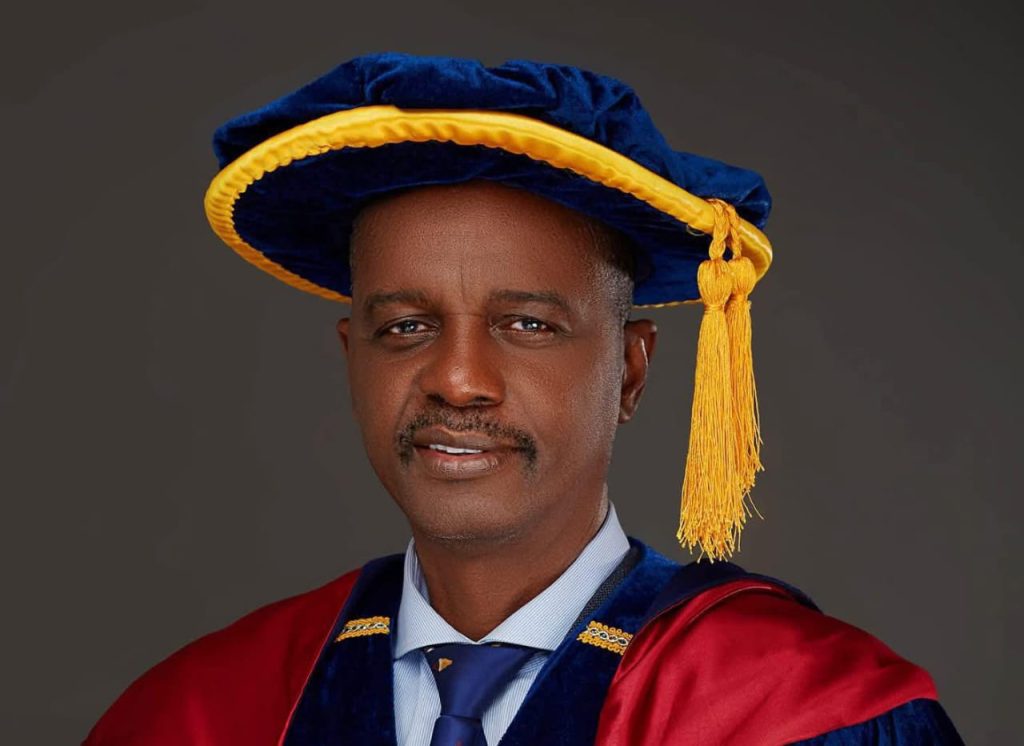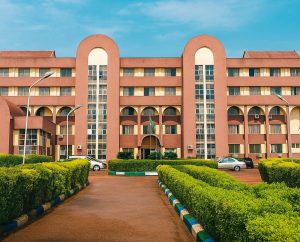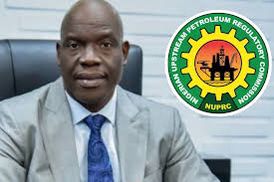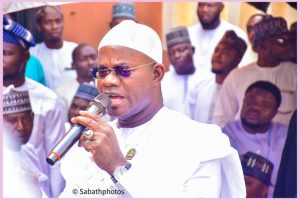The Quiet Revolutionary Professor Olayemi Akinwumi and the Federal University Lokoja Renaissance

🔹By Uduak Etim
When the Professor of African History Olayemi Durotinmi Akinwumi, PhD, AvHF, FHSN, FNAL, fspsp took the reigns as Vice-Chancellor of Federal University Lokoja in February 2021, few could have envisioned the silent revolution that would unfold over the next five years. As his tenure approaches its conclusion in February 2026, what stands today in Lokoja is not merely an upgraded university, but a reimagined institution; bold in ambition, firm in structure, and alive with purpose.
What emerged under his guidance is nothing short of an educational renaissance, the kind of institutional transformation that proves Nigeria’s higher education can still deliver excellence—when vision meets humility, and leadership aligns with service.
At the core of this transformation lies a philosophy rooted in substance. Professor Akinwumi, a distinguished academic with multiple fellowships and national honors, brought more than credentials to the office; he brought clarity of vision and an unwavering commitment to institutional advancement.
In the noisy world of academic politics and inflated egos, he chose the path of quiet progress.
“Leadership is the capacity to translate vision into reality,” Warren Bennis once said. It is this belief, etched in FUL’s legacy documentation, that guided every decision, every structure, and every reform initiated in his administration.
The visible proof of this transformation rises skyward in the form of FUL’s three-storey Senate Building—an architectural beacon symbolizing the university’s aspirations. Yet, it is merely one piece of a far larger canvas. Across the main campus in Felele, a new academic geography has emerged: a fully operational Faculty of Engineering, Faculty of Law, and an expanded Faculty of Science Complex. The construction of an Assembly Hall is underway, while a 250-seat Lecture Theatre, generously donated by the family of late Elder Joseph Oyeyani Makoju, adds to a growing roster of academic spaces now bustling with student life, amongst others.
The infrastructural evolution is as comprehensive as it is strategic. A fully equipped University Health Center, now in its second phase, complements the entrepreneurship and skills acquisition hub—designed to cultivate self-reliant graduates. The Central Research Laboratory, gifted by the Abdul Samad Rabiu ASR Africa Initiative, stands as a centerpiece for scholarly inquiry.
Faith and community also found space in this vision, as evidenced by ongoing construction of the Chapel of Grace and the completed Alhaji Abdulahi Habib Memorial Mosque, donated by Dr. Maimuna Abdulahi.
To create an ecosystem where students thrive, Akinwumi’s administration prioritized the student experience with modern hostels, sports complexes, green spaces, a zoo and conservatory, Free Wi-Fi services across both campuses and even children’s recreational zones. But this transformation was not limited to aesthetics or comfort; it extended into the very arteries of the university’s operation.
The construction of a strategic road network has ensured seamless connectivity across campus, while an upgraded transport fleet, including buses, fire trucks, and emergency vehicles, has vastly improved mobility and safety.
Beyond the infrastructure, the numbers tell a compelling story.
In a span of four and half years, academic programs at FUL grew from 32 to over 58; a remarkable 81% expansion. New faculties and colleges emerged from vision to reality, including College of Health Sciences, College of Post Graduate Studies, Faculties of Pharmacy, Engineering, Law, Agriculture, Environmental Sciences and Education. A groundbreaking academic partnership with the National Institute for Legislative and Democratic Studies birthed 16 doctoral programs, further cementing FUL’s role in postgraduate excellence.
Meanwhile, faculty strength surged dramatically. From just 24 professors in 2021, the university boasts 68 by 2024 and currently over 70, a 192% growth, mirroring the impressive student population growth from 6,000 to about 30,000; a 400% leap of both undergraduate and postgraduate students that speaks volumes about the institution’s renewed appeal and capacity. Accreditation successes followed swiftly, with over 50 academic programs gaining approval from the National Universities Commission between April 2022 till date.
Special programs has also been established including IJMB – Interim Joint Matriculation Board, JUPEB – Joint Universities Preliminary Examinations Board, Pre-degree I and I, Diplomas – Part time, Special Undergraduate Degree/top up/HND conversation with study centers outside Lokoja.
Between 2011 when FUL was established to 2021 only two Inaugural Lectures were presented but the Akinwumi’s effects have seen these skyrocket from two to 29 as at the time of this report in 2025.
So far, the University under Prof. Akinwumi has organized 19 Distinguished Public Lectures bringing in eminent personalities within and outside Nigeria to proffer solutions to national issues and thereby stregnhtening the town and gown relationship.
As the university grew, so did its recognition. FUL rose from the 35th position on the Webometrics ranking of Nigerian universities to being named the top performer among the nine federal universities established in 2011. More notably, in 2023, it earned a place in the prestigious Times Higher Education Sub-Saharan African Rankings—a milestone that placed FUL firmly on the international academic map.
These accolades were not the product of chance but of deliberate innovation.
Thirty-two new academic programs were subjected to rigorous resource verification, while specialized laboratories, digital library expansions, and curriculum redesigns introduced a wave of tech-enabled learning. The integration of e-learning tools across departments signaled a university not just catching up, but leaping forward.
Perhaps most emblematic of FUL’s bold future and Akinwumi’s parting legacy is its ambitious solar project; a $200M worth solar farm (for 8 Nigerian Universities) by REA assisted by AfDB and World Bank under Energizing Education Programme, yet to be commissioned but already celebrated initiative that positions the university as a leader in sustainable campus development.
From solar-powered street lighting to academic and administrative building energy independence, this initiative promises a new chapter in energy autonomy, environmental stewardship, and educational innovation. Charging stations for electric vehicles and a live demonstration site for renewable energy research now make FUL both a classroom and a case study for sustainable infrastructure in Africa.
Towards improving the Internally Generated Revenue IGR, Akinwumi’s leadership has established FUL Felele Consult Ltd. and the Directorate of Consultancy Services and Ventures to run the following businesses and outfits; FUL Printing Press – on Build, Operate and Transfer – BOT, FUL Zoo and Conservatory, FUL Table Water Factory, FUL Farm, Shopping Complex/Lock up shops, FUL Senior Staff Club and Block Moulding Industry. However, FUL Petrol Station and Microfinance Bank are in progress.
Behind all these achievements lies a story of prudent financial management.
Despite operating within the tight contours of federal allocations, Akinwumi’s leadership completed major infrastructure, drove academic expansion, and built sustainable systems without overreach. Through strategic alliances, philanthropic partnerships, and efficient budgeting, FUL not only survived—it thrived. Donour relationships blossomed, university revenue streams diversified, and every kobo spent seemed to yield tangible institutional value.
Yet, beyond numbers, buildings, and rankings, it is the man himself; Professor Olayemi Durotinmi Akinwumi, Professor of African History, who has emerged as the defining symbol of the Lokoja Model.
Described by peers and colleagues as “humility personified,” his leadership style is marked by open dialogue, strategic patience, and an unflinching commitment to progress over pride.
He walks the campus without entourage, invites opinions from all corners, and remains the last to claim credit and the first to shoulder blame. His style brings out the best in teams, turns resistance into momentum, and transforms bureaucracy into action.
As the university community reflects on the original vision stated at FUL’s founding—to be the best among the nine federal universities established in 2011, and one of the top ten in Africa—there’s no denying that the groundwork has been firmly laid.
The mission “to train employable and self-reliant graduates through competency-based teaching, applied research and practical community service” is no longer a distant aspiration but a living, breathing institutional ethos.
Today, FUL graduates are entering industries equipped not only with degrees, but with skills, mindset, and experience. Through curriculum relevance, entrepreneurial training, and real-world engagement, the university is bridging the gap between education and employability, research and relevance.
Naturally, such transformation has not gone unnoticed. National recognition has followed: commendations from the Federal Government, honors from professional bodies, and widespread acclaim among Nigerian academic circles. International institutions have also taken note, inviting FUL into global education networks and placing Professor Akinwumi among Nigeria’s most compelling higher education ambassadors.
As February 2026 draws near, what looms on the horizon is not a farewell, but an inflection point.
The transformation at Lokoja has positioned Professor Akinwumi as a prime candidate for national leadership in education and beyond. His credentials are proven—not merely through administrative efficiency, but through transformative leadership, sustainable development, and integrity under pressure.
As Nelson Mandela once said, “It always seems impossible until it is done.” What Professor Akinwumi has done in Lokoja was once viewed as improbable. But the impossible became tangible, one deliberate step at a time.
Now, the question remains; can Nigeria recognize in him the kind of leadership it so desperately needs? Can we scale the Lokoja Model from one university to a national blueprint?
His legacy at FUL is not just in concrete and curriculum; it is in culture, capability, and courage. A chapter closes, but the book remains open. Nigeria must now decide what story it wants to write next, and whether it will let this quiet revolutionary lead it forward.





